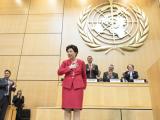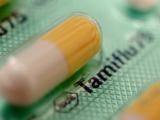H1N1 review seeks confidential correspondence
The 29-member expert panel convened to conduct an independent review of the World Health Organization's (WHO's) pandemic response has asked to review confidential correspondence between the agency and vaccine manufacturers. Dr. Harvey Fineberg, chair of the committee and president of the Institute of Medicine, said reviewing all records is necessary to address claims that pharmaceutical companies benefited inappropriately from contracts for vaccines and antivirals that went unused.
Early flu spread linked to dance club
One of the earliest outbreaks of H1N1 pandemic flu in Singapore arose from close contact in the crowded confines of a dance club, researchers from that nation's Ministry of Health report. The outbreak's source was a 20-year-old woman who developed flu symptoms on Jun 16, 2009, after visiting Malaysia, and went to a giant dance club the next evening with 20 friends. The total toll was 48, including 3 of the friends, other club patrons and employees, and family members.
http://www.annals.edu.sg/pdf/39VolNo4Apr2010/V39N4p299.pdf
Ann Acad Med Singapore report
Spanish health workers decline vaccine
A survey of healthcare workers at a major Madrid hospital, taken during the H1N1 pandemic and published in Vaccine, shows that only 16.5% accepted the pandemic vaccine, though 49.7% received the seasonal vaccine that same year. The goal set by the WHO is 60%. The most common reasons for refusal of the pandemic vaccine were doubts about its efficacy, fear of adverse reactions, and lack of concern over contracting the pandemic virus.
http://dx.doi.org/10.1016/j.vaccine.2010.04.101
May 14 Vaccine abstract
Severe H1N1 infection linked to loss of key immune cell
An analysis of three severe cases of H1N1 flu in the United Kingdom—two young adults who survived and a pregnant patient who died—shows that all three experienced loss of a particular class of blood cell. Researchers from several British institutions write that the unexpected sharp drop in NK cells, peripheral-blood lymphocytes that are a key component of the innate immune system, may provide a clue to the body's inability to control viral reproduction in severe cases of pandemic H1N1 flu.
http://www.plosone.org/article/info%3Adoi%2F10.1371%2Fjournal.pone.0010675
May 18 PLoS One article


















